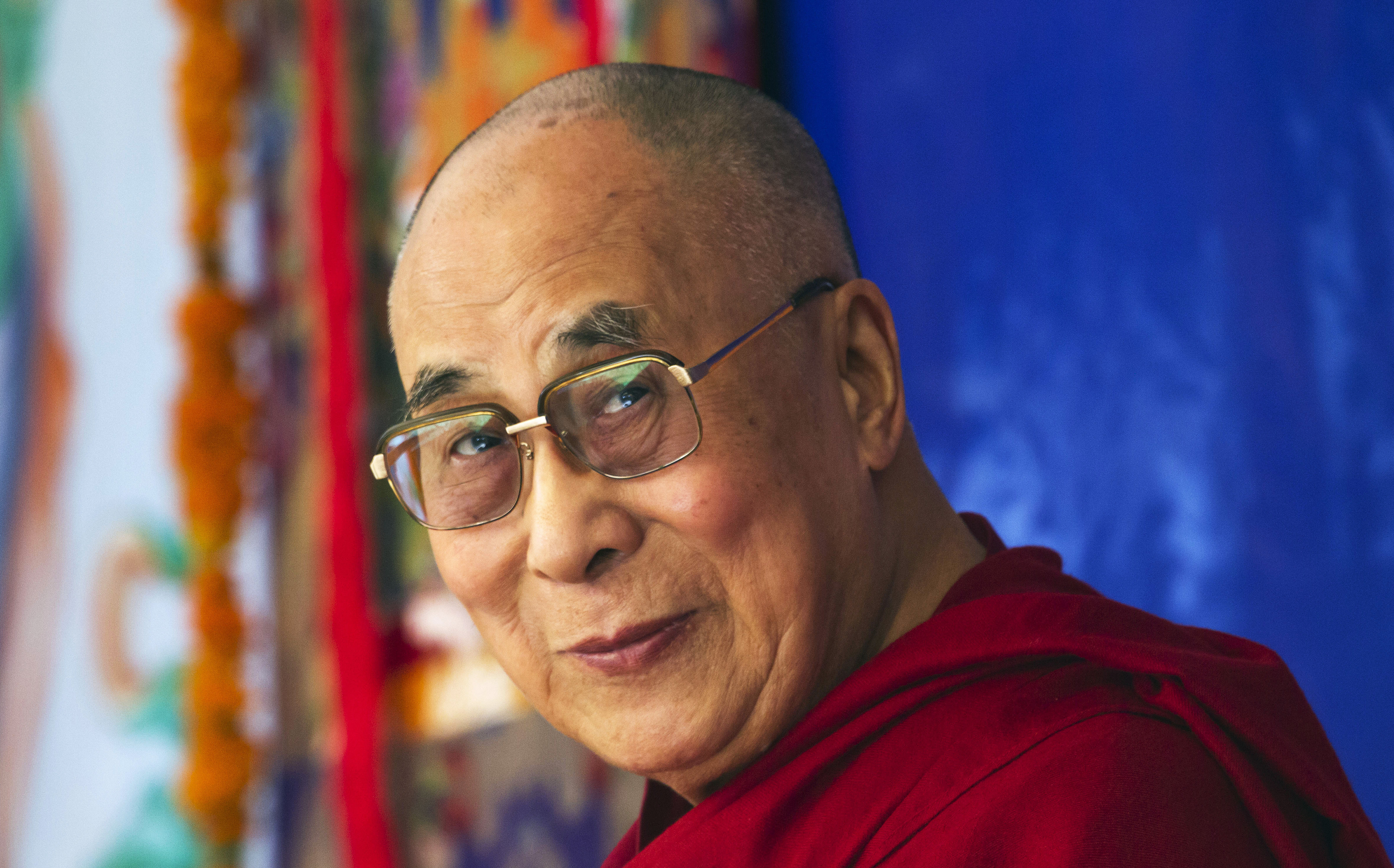
By Laden Tshering Samdup from KATHMANDU, Nepal
20 July 2015
Controversy dogs him wherever he goes; even a personal celebration like a birthday is made into a media event to defame him. Dorje Shugden group, his own people, having ideological differences leave no stones unturned and let no opportunity pass, to bring him to disrepute. Tibetans are impatient of his response towards the Chinese occupation of Tibet and otherwise submissive followers; Some have taken matters in their own hands and are resorting to the extreme violence of self-immolation in an attempt to seek international attention and help for the Tibetan issue.
No doubt all these events are giving him extreme pain considering his lifelong dedication and devotion to compassion and love for fellow human beings. This could perhaps be the reason behind his relinquishing political powers and calling himself “a simple buddhist monk.” This statement, coming from a towering figure like him, one conferred with the Nobel Peace Prize as well as numerous awards and doctorate degrees, has perhaps puzzled much of the world and me included. What is the significance of this statement and what guidance does it have for Tibetans?
To unravel this wisdom I have tried to go back in time and look at the history of Tibet parallel with that of the world. From the time of King Trisong Detsen, who first introduced Buddhism to Tibet in the eighth century BCE, this country, its kings as well as simple Tibetans alike, have been engrossed in spiritualism and the search for true happiness of mankind, while the rest of the world have reveled in wars, colonial expansionism, and material riches.
Tibetans have scoured the great Chinese and Indian civilizations for the greatest minds, and have since diligently followed their teachings. Tibet was blessed with the presence of not one but several enlightened gurus who showed different pathways to reach the same objective enlightenment. The Nyingma Tibetans and their guru Padmasambhava from Swat valley, Pakistan; Kagyu Tibetans and their gurus Tibetan Marpa and Naropa from Bengal; the Sakya Tibetans and their guru Virupa from Tripura India; and the Gelug Tibetans with their gurus Je Tshongkapa of Tibet and Atisa from Bangladesh. As times passed several more enlightened minds followed to refine the original teachings. To ensure that their teachings were not lost after their Parinirvana, an ingenious system of reincarnate lamas or Rinpoches developed, and precious religious knowledge has been preserved to date in a pure form as it existed originally several centuries ago.
Some enlightened minds visited Tibet under royal patronage whereas others were made to do so. There are legendary tales of supreme sacrifices and hardships endured by Tibetans to partake of their knowledge. Marpa braving the great Himalayas with sacks of gold to visit India and seek the knowledge from Naropa; King Yeshe-Wo sacrificing his own body to offer the gold ransom to Atisa so that Tibet could be enriched with his wisdom; 20 young lamas visiting India, with 18 dying due to diseases and rigors of life in India, and only 2 returning to Tibet, out of which one by the name of Sambhota successfully formed the Tibetan lexicon to preserve the scriptures etc.
All such efforts helped Tibet build up a repository of human wisdom not found anywhere in the world. In more recent times when the Muslim hegemony swept through India destroying all vestiges of Buddhism, Tibet was saved by the barriers of the mighty Himalayas, and the Tibetan government itself imposed a clampdown on the visits of foreigners to preserve and protect the dharma, Tibet’s only riches and treasures. So we hear of the adventures of failed attempts made by many great minds of western civilizations to have a glimpse of this treasure, termed by them “oriental wisdom”.
After the Muslim adventure the world was engulfed by the two great wars and mankind suffered untold miseries and violence at an epic scale. In the aftermath of the World War 2, Tibet was occupied by China and the Tibetans left their country en masse along with His Holiness and other Rinpoches. Now the Tibetan diaspora are scattered to every nook and corner of the world.
For a people preoccupied so much with religion, divine intervention is a fact and reality of life. For the Nyingmas it is the rule and their system of the tertons and termas enables their guru rinpoche to guide them through the turmoil of time. So to understand the mind of His Holiness, the world events including those of Tibet have to be seen in terms of divine intervention, and to say that the Tibetans were fated to be refugees would be gross stupidity. The dharma had chosen Tibet as its place of safety and sanctuary and the Tibetan people had ably played their role.
After the two world wars when the entirety of mankind had reached the depths of miseries brought on by hatred, greed and violence, it was time for dharma and its shepherds, the Tibetans, to leave this place of sanctuary and as chosen ones bring to mankind wherever he may be the messages of love, non-violence, compassion and selflessness. The so-called Chinese aggression was a simple ruse played by the divine intervention to enable the Tibetans to spread out throughout the world.
Dharma has no borders and country. It is for the benefit of not just Tibetans but for all mankind irrespective of his citizenship, caste, creed, and color. So it is for the Tibetans get over the mundane matters of the world and follow the footsteps of His Holiness and call ourselves not just “Tibetans” but “simple Buddhist monks”, and through words and deeds spread the wisdom of our religion to all of mankind.
This is the divine ordination for the Tibetans and this is perhaps what His Holiness had tried to convey to us through his simple one line statement that “I am a simple Buddhist monk.”








